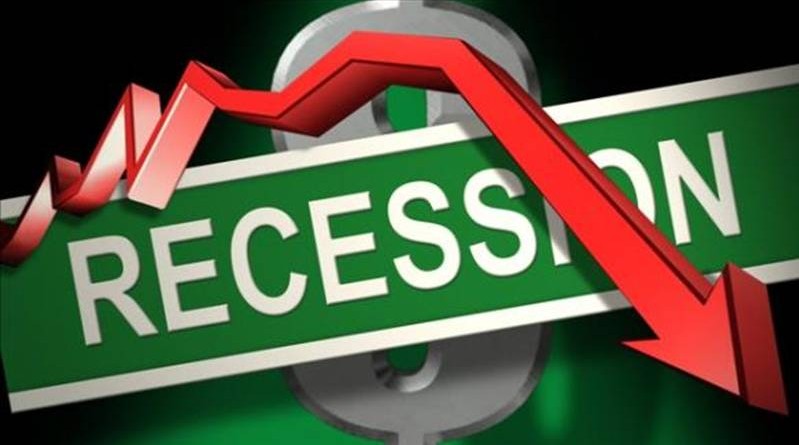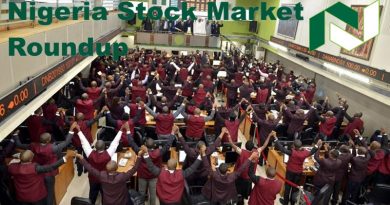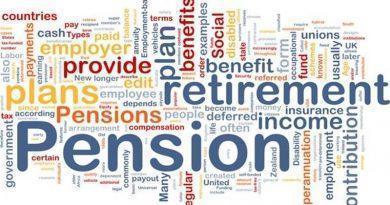Nigeria may be heading towards recession
Nigeria’s economy is decelerating at an alarming clip, increasing the risk of a recession by year end, as leading economic indicators flash red warning signals.
Africa’s largest economy expanded by 2.35 percent in the second quarter (Q2) of 2015, down from the 3.96 percent recorded in the first quarter.
Research firm, Financial Derivatives Company (FDC) forecasts growth of 2 percent and 1.8 percent in the third and fourth quarters of 2015 respectively.
“This is typically the stage before a recession in the business cycle,” said Bismarck Rewane, CEO of FDC in a September 2 presentation at the Lagos Business School.
“The economy is at near a standstill because of absence of decision makers. Leading economic indicators are slowing.”
A recession is typically defined as two consecutive quarters of negative growth.
The FBN Purchasing Managers Index (PMI) shrank in August to 49.2 from an earlier low of 50.6, indicating contraction.
The manufacturing sector, which accounts for 10 percent of GDP, is already in recession as it contracted for a second consecutive quarter, by 3.8 percent year on year in Q2 2015, compared to growth of 14 percent a year earlier.
The NSE – all share index, a broad benchmark of Nigerian stocks (another leading indicator), has returned -14.85 percent year to date, while broad money supply (M2) declined by 0.61 percent in June 2015, below the level at the end of December 2014.
Oil, from which the Nigerian government earns 70 percent of budget revenues, tumbled to a six-and-a-half low of $42per barrel (Pb) last month, 33.9 percent lower than the Q2 average of $63.55pb.
“Given the recent happenings in the global oil space and the anticipated further drop in oil prices, owing to prospective increase in supply from Iran, we anticipate a continuous drop in Nigeria’s oil revenue,” Oluwakemi Akinde, a research analyst at investment firm, Meristem Securities, said in response to questions.
Nigeria’s economy is grappling with dollar shortages, power cuts, the Boko Haram insurgency, and shrinking purchasing power.
Eleven of the 22 business lines for which the Central Bank of Nigeria (CBN) reports non-performing loans (NPLs) breached the 5 percent limit in June, as well as seven of the ten largest borrowing lines, according to minutes from the bank’s July 23/24 Monetary Policy Committee meeting, released last week.
The CBN which is battling to maintain macro stability has little room to support the economy as a rate cut from a record high of 13 percent would fuel inflation and temper appetite for naira assets.
Inflation for July printed at 9.2 percent, outside the bank’s target band of 6 to 9 percent.
“The transient drivers of domestic inflation are evidently outside the influence of monetary policy, and given the existing tight stance of monetary policy, I reiterate the need for complementary fiscal and structural policies to spur domestic aggregate supply and rein in inflation,” CBN governor, Godwin Emefiele, said in his MPC statement.
Nigeria’s unemployment rate rose to 8.2 percent in the second quarter of 2015 from 7.5 percent in the earlier quarter, according to data from the National bureau of Statistics (NBS).
The country’s population growth rate of 3 percent, combined with sub-par economic growth at the 2 percent – 3 percent range, implies negative per-capita growth, which acts as a drag on the consumer sector, according to Renaissance Capital economist, Yvonne Mhango.
The absence of a cabinet and direction for the economy under the new President Muhammadu Buhari may be a factor in the negative indicators.
“It is important to proceed rapidly with any reforms…and this urgency is driven more by the state of the economy, and the need to proceed rapidly, rather than any considerations of political capital,” Razia Khan, managing director, chief economist, Africa Global Research, at Standard Chartered Bank, said in response to questions.
PATRICK ATUANYA wrote for BusinessDay



